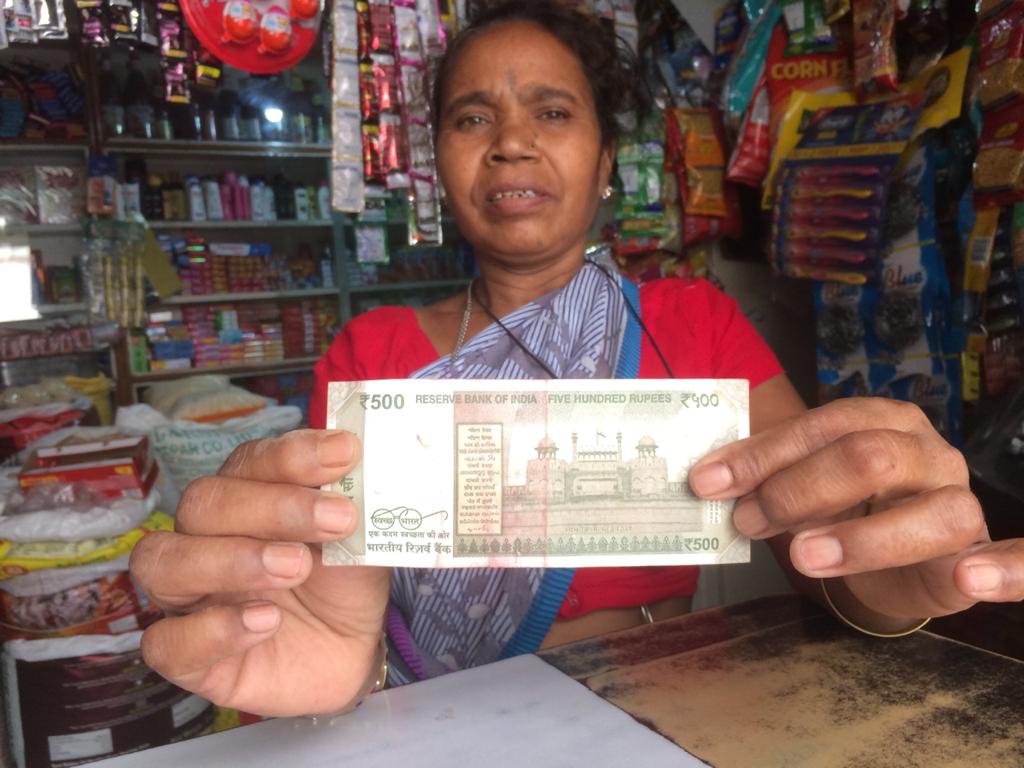

*Lady shop keeper refuses to accept soiled Rs 500
Money operators biggest nightmare is not printing currency notes, but men in cities, towns and villages across India who ask bankers "Dollar?Pond?Rupee? You want.
They lean against national banks on which are records of a range of the post-independent currency notes such as rupee one, rupee two, rupee ten and rupee two thousand.
These currency notes line side boxes of the RBI. Surely, the latest to go out of circulation is Rs 2000 printed for the first time after demonetization in 2015-16.
That's not a pointer in market other than a burden on black money holders who were learnt to be slowly and gradually depositing Rs 2000 in banks and shops to retain its total value in Aadhaar controlled market.
No wonder why Rs 2000 currency notes don't come out of the banks ATMs these days. That is fine.

But, a problem, if any, was rooted in soiled notes, each carrying dirt, filth,ink-that were in day-to-day circulation among people, specially poor in rural areas. How?
After Sudhir Singh drew Rs 5000 from SBI ATM, Kanke Road, one Rs 500 among the notes was a soiled note. Soon, when he was paying the bill, the Reliance cashier identified it and refused to accept it. The response was the same at a grocers shop.
"But I bought fish and without any hitch, the fish seller accepted this soil note", Singh said.
A random survey conducted by www.jharkhandstatenews.com among 25 vegetable vendors, fish and fruit sellers in Kanke Road, Ranchi, in front of CMPDI complex during May 5-20,2020 revealed that over 90 percent of soiled notes were in quick circulation among them, especially in the rural belt of Jharkhand state capital.

As per the RBI guidelines, these soiled notes have to be locked up. Printed afresh. So that they are not in circulation. Notably, this was not done by the SBI and many other banks. The main reason lies in not properly checking these soiled currency notes.
"Yes", said an SBI Officer who does not want to be named. In the past, notes were counted manually. This helped the detection of the soiled notes. But now these notes are counted by a device.
"More often than not, the soiled notes can escape detection by the rupee counting devices. This allows their circulation through ATMs", said Jharkhand state government OSD B.K. Sinha.